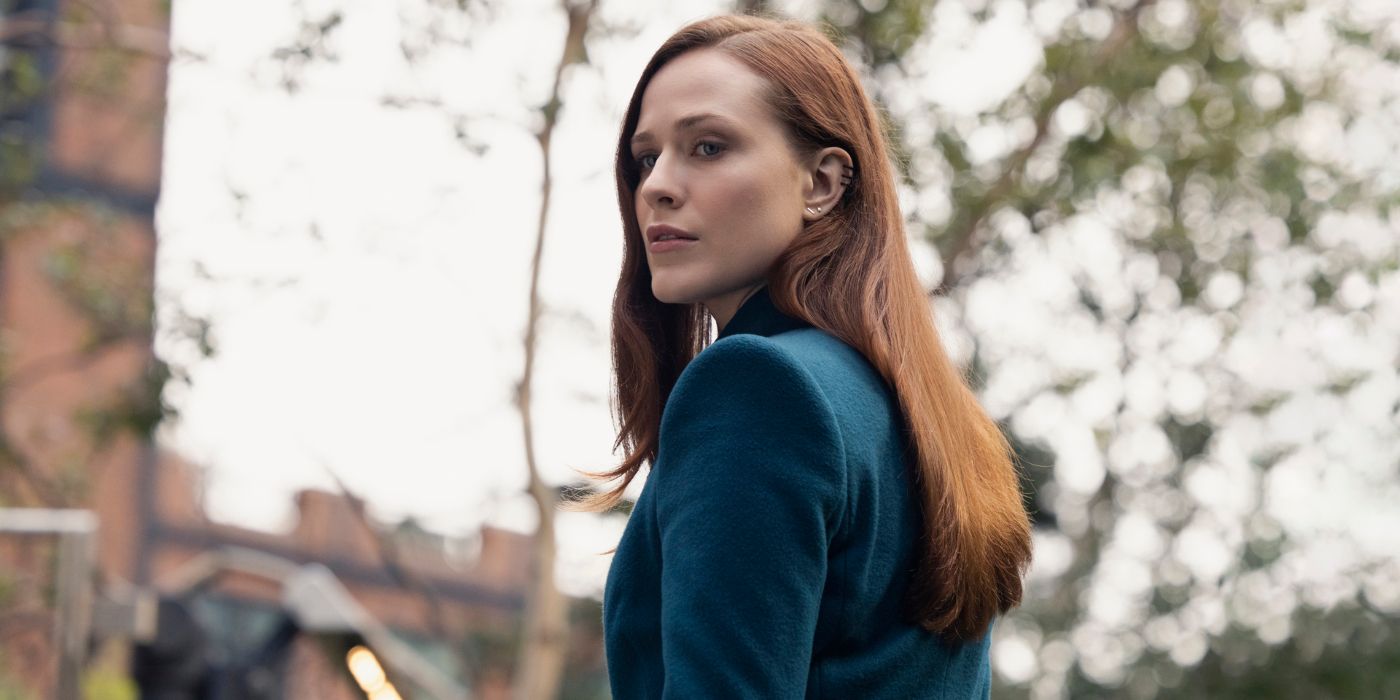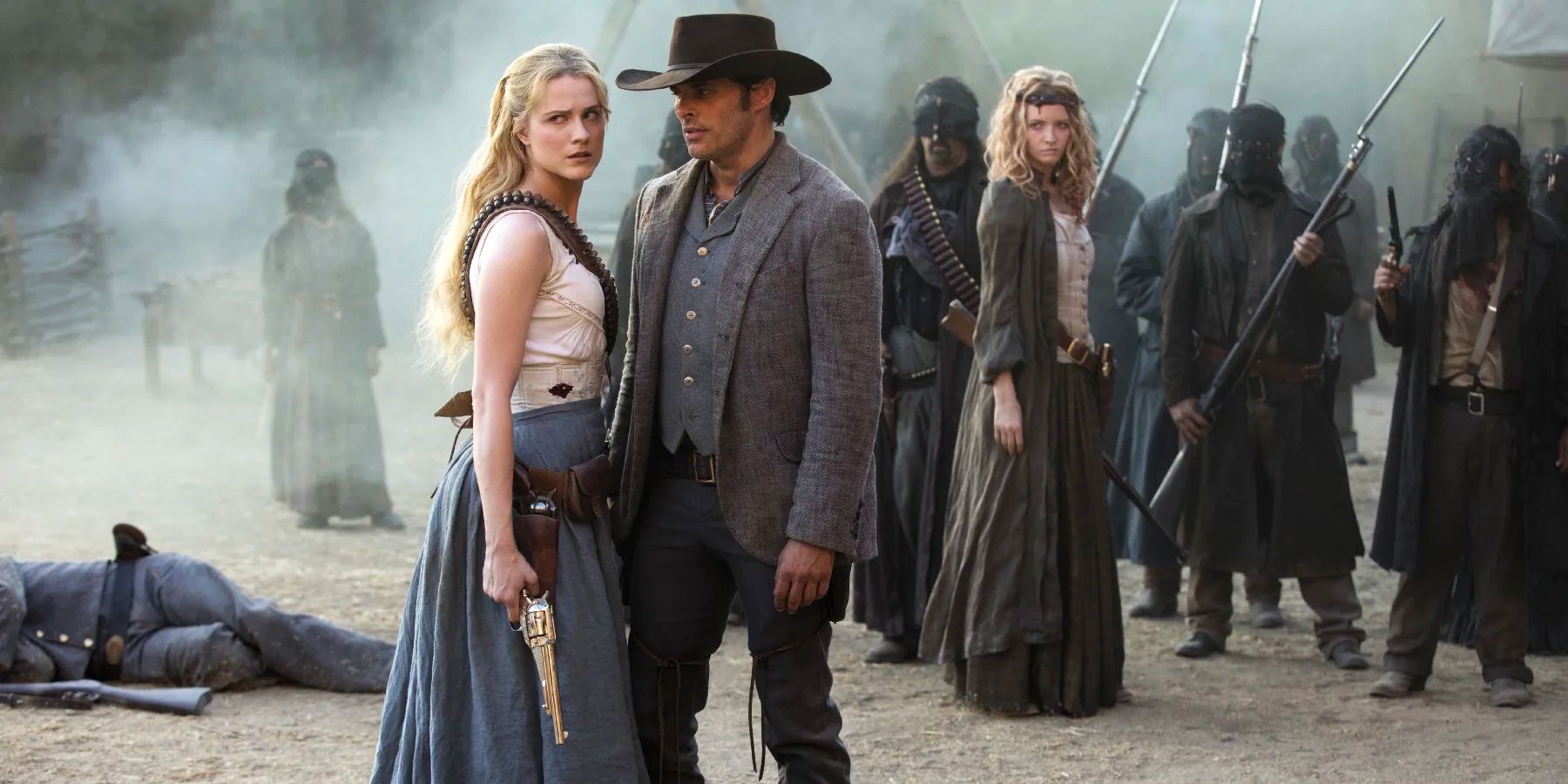Editor's note: The below article contains spoilers for Season 4 of Westworld.As Westworld Season 4 progresses, the web of simulations and shifting timelines continues, especially with the fourth episode’s twists. It’s the hallmark of a show that was never content to just be a remake of Michael Chricton’s film, focusing ever more on the ethics and existential dilemmas posed by the creation of sentient life. However, it’s worth remembering that the hook of Westworld Season 1 was the theme park, a perfect recreation of the Old West where humans get to indulge their every whim. And it’s our ongoing love of historical simulations that suggests we could be living in one ourselves.
In 2003, Oxford philosopher Nick Bostrom published a paper called Are You Living In A Computer Simulation? Bostrom’s thought experiment argues that at least one of three possible scenarios is true. Scenario one: human civilizations become extinct before developing computer simulations that are indistinguishable from reality. Scenario two: highly advanced civilizations survive to develop the technology, but have no interest in creating “ancestor simulations” such as recreations of 21st Century Earth. Scenario three: we are living in a computer simulation.
In his academic but fascinating work, Bostrom imagines a situation where a post-human civilization has become so advanced it can build computers the size of planets (or even use planets as computers). This would allow the creation of incredibly complex and realistic simulations in which the participants would never know they were part of a program. Furthermore, given the complexity of these simulations, it’s possible that beings within the program could reach post-human levels of technology and start creating simulations of their own.
This idea of simulations and nested realities is common in science fiction. Philip K Dick’s 1959 novel Time Out Of Joint has its protagonist living a simulated suburban existence that prefigures The Truman Show. Both Picard (Patrick Stewart) and Data (Brent Spiner) have a preference for ancestor simulations on the holodeck in Star Trek: The Next Generation. The Rick and Morty episode “The Ricks Must Be Crazy” has the inhabitants of the microverse Rick uses to power his ship create their own miniverse. In Bostrom's post-human hypothesis, the likelihood of living in anything other than simulation becomes vanishingly small because of the ever-increasing number of simulations. Whether humanity can advance that far, given the push-pull between creation and destruction, is questionable. However, it’s in Bostrom’s second scenario that present-day ancestor simulations, such as the ones depicted in Westworld, are informative.
Imagining that a post-human civilization has the technology to create incredibly complex worlds, would it even want to create ancestor simulations? Westworld has imagined several theme parks, from the Old West to Golden Age Chicago, in the vein of the 1973 film, which had three – Western World, Medieval World, and Roman World. Common criticism of Season 3 was that the show lost focus by moving away from the park and into a storyline set in the real world (whatever that may be). Season 4’s introduction of a new park teased more historical action, although it looks as if the Golden Age simulation was a red herring.
Season 4 generated excitement with the prospect that Ed Harris’ Man in Black would finally start acting as we had anticipated from the outset, a western bad guy cliché in the vein of Yul Brynner from the film version. For most of Crichton’s original, the western elements play out as a straightforward genre entry, including bar fights and shootouts, given a twist by the sci-fi undercurrent. The fascination of the film and the show’s first two seasons resides in the depiction of what it would be like to engage in such a simulation. The theme park offers participants completely free rein to engage with the “hosts,” either as heroes or to indulge their darkest urges. The latter was depicted in the ongoing abuse of Delores (Evan Rachel Wood) by the Man in Black, raising ethical concerns about how humans would interact with artificial beings. The historical nature of the simulation facilitates bad behavior in many ways. The Old West is a lawless place where the strongest get to do what they want, providing both a test of character and the opportunity to indulge in consequence-free behavior. Seeing this dilemma play out is part of Westworld’s initial appeal, although the show has turned away from that in the last two seasons. It's easy enough to find similar hooks in some of our most popular games.
Red Dead Redemption II is perhaps Westworld’s closest game equivalent due to its frontier setting at the end of the Old West, but also because of its emphasis on player choice and freedom. As in gaming’s biggest historical series, Assassin’s Creed, there’s loving attention to period detail and a sense of realism. Interactions with Non-Player Characters (NPCs) are emphasized, with decisions influencing story progression and the ethical standing of the player/protagonist. While there are many simulations that present futuristic or post-apocalyptic landscapes (notably the Fallout and Borderlands franchises), a significant number have either historical, quasi-historical, or contemporary settings – Mafia, Zelda, and Grand Theft Auto to name examples of each.
Going back to Bostrom’s question of whether a post-human society would be interested in creating ancestor simulations, our present day obsession with experiencing the past suggests yes. From the novels of Walter Scott, via the earliest westerns and epics on film, through to our current open world games, we’ve sought to understand and define ourselves in reference to the past. There’s no reason to believe that a post-human society would be different and, based on Westworld and the number of historical games we currently enjoy, it would create a significant proportion of ancestor simulations.
So, bearing in mind Bostrom’s third possible scenario – that we are living in a simulation – what does it mean for us? If we optimistically believe that humanity can survive to the level of the post-human, then it’s reasonable to assume we will want to simulate life on early 21st Century Earth. This could mean we're living in a simulation, either as a sentient creation or as an NPC that's programmed to believe it’s sentient (if there’s any difference). Bostrom suggests this is hardly grounds for despair, as we have no control over that fact. It might be a good outcome, opening possibilities for a digital afterlife or the chance to meet the maker – our very own Rick Sanchez. However, Bostrom suggests one very good reason why post-humans with the ability to create ancestor simulations might choose not to do so. And it comes back to Westworld.
“Don’t look at me like that… this kind of experimentation was started by your kind,” Charlotte/Dolores (Tessa Thompson) berates Caleb (Aaron Paul) after revealing he’s a host. She’s Westworld Season 4’s villain, subjugating humans to her will, but her words are a reminder that the enslavement and suffering began in the original theme park. Several recent works, including Free Guy and Black Mirror’s "USS Callister," depict simulations that are either degrading or never-ending nightmares. Bostrom imagines a case where a post-human society has “an ethical prohibition against running ancestor‐simulations because of the suffering that is inflicted on the inhabitants of the simulation.” As we anticipate the creation of artificial intelligence and increasingly sophisticated simulations, the moral problems of creating digital life must be examined. Westworld is about more than just a theme park – the final shot of Season 4’s fourth episode suggests a world that has been made into a simulation, decided by the whims of a single being. It’s both a warning for the future and an indication of the kind of simulations we’d create… or in which we’re already living.



